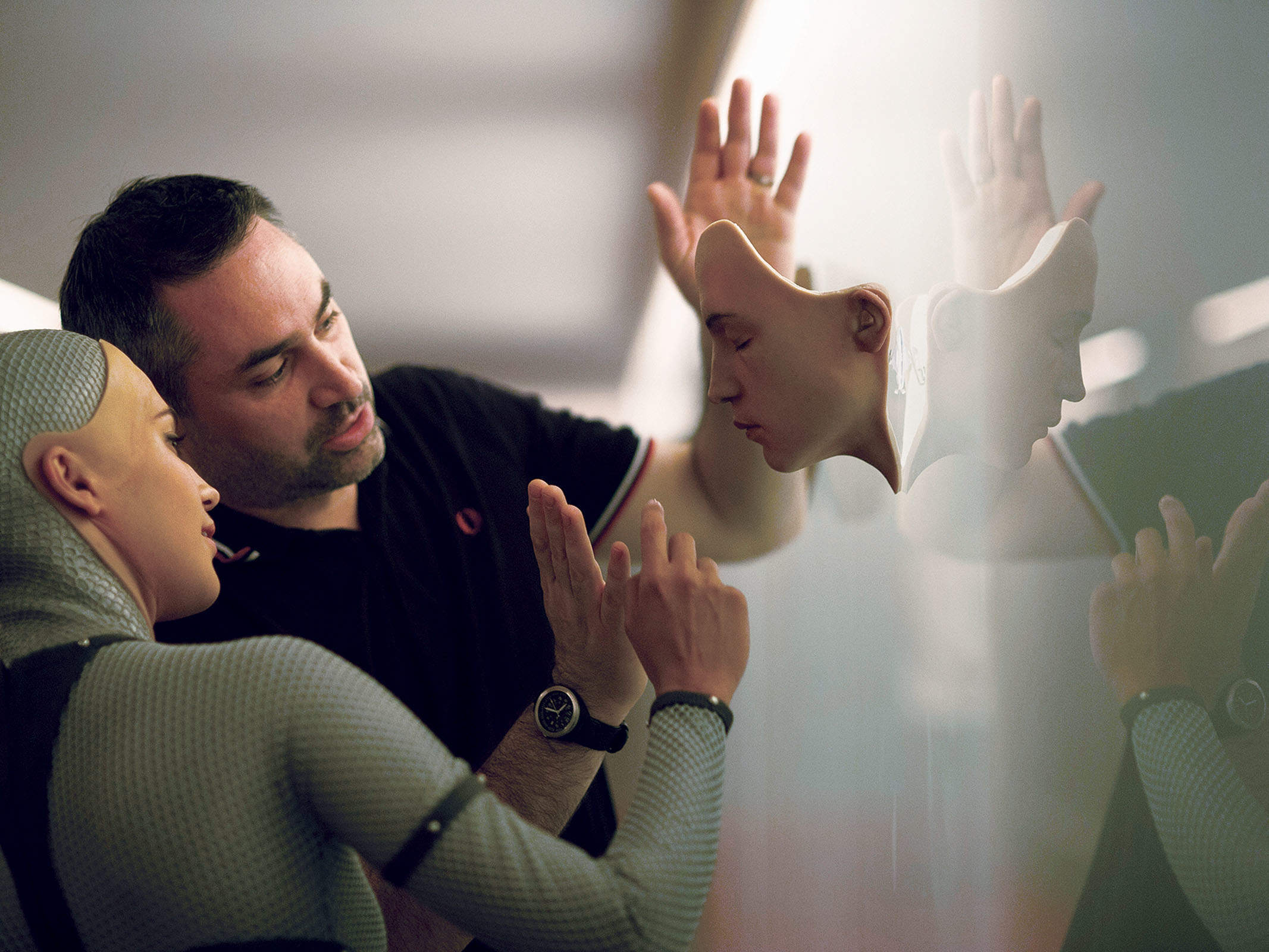
A few months ago, a friend asked me to see a film. Oh, and would I talk to its director afterwards about how it looked from a feminist perspective? I agreed immediately – principally, I liked the idea of getting a bespoke version of a DVD commentary – and found myself surrounded by film executives in a central London screening room, watching Alex Garland’s new movie, Ex Machina.
It begins with a twentysomething software engineer, Caleb, being invited to the mountain retreat of his company’s elusive founder, Nathan. In a cabin miles from anywhere – a lesser film would have had Caleb looking at his phone to discover the tragic words “No signal” – the brilliant, alcoholic and dysfunctional Nathan has built an artificial intelligence and housed it in the body of a delicate, whirring robot called Ava. He wants Caleb to perform a version of the Turing test to find out if Ava has consciousness.



